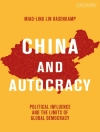In Writing Belonging at the Millennium, Emily Potter critically considers the long-standing settler-colonial pursuit of belonging manifested through an obsession with firm and stable ground. This pursuit continues across the field of the postcolonial nation today; the recognition of colonization’s destructive impacts on humans and environments troublingly generates a renewed desire to secure non-indigenous belonging. Focusing on the crucial role that Australia’s contemporary literature plays in shaping ideas of place and its inhabitation, Potter tracks non-indigenous belonging claims through a range of fiction and non-fiction texts to examine how settler-colonial anxieties about belonging intersect with intensifying environmental challenges. Significantly, she proposes that new understandings of unsettled and uncertain non-indigenous belonging may actually be fruitful context for decolonizing relations with place – something that is imperative in a time of heightened global environmental crisis.
Innehållsförteckning
Introduction
Chapter One: Anxious Belonging
Chapter Two: Literary Expectations: Grounding Belonging
Chapter Three: Getting Lost with Nikki Gemmell
Chapter Four: Redeeming Environments
Chapter Five: Desiccated and Infective: Writing in Thea Astley’s Drylands
Chapter Six: The Past is All Around: Chloe Hooper’s A Child’s Book of True Crime
Chapter Seven: Toxic Imaginaries: Undoing Origins and Endings
Afterword
Om författaren
Emily Potter is a Senior Lecturer in the School of Communication and Creative Arts at Deakin University in Australia.












